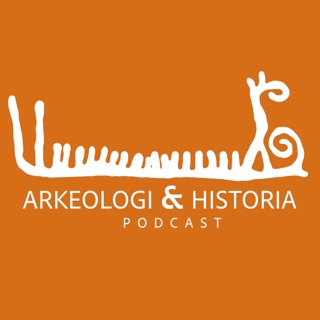
Shermer Says: Debate Skills, 2025 Nobel Peace Prize, Autism, Vaccines, ANTIFA, Bari Weiss & CBS News
First installment of our new series Shermer Says. Topics covered: Debate Skills Nobel Peace Prize 2025 Autism & Tylenol COVID Vaccines & Myocarditis ANTIFA Bari Weiss & CBS News New Skeptic Research Center Study
13 Okt 29min

When Rationality Becomes Irrational
For many decision scientists, their starting point—drawn from economics—is a quantitative formula called Rational Choice Theory, allowing people to calculate and choose the best options. The problem is that this framework assumes an overly simplistic picture of the world, in which different types of values can be quantified and compared, leading to the “most rational” choice. Behavioral economics acknowledges that irrationality is common but still accepts the underlying belief from economics of what a rational decision should look like. Drawing from economics, psychology, and philosophy—and both inspired by and challenging Daniel Kahneman’s Thinking, Fast and Slow—Barry Schwartz shows how the focus on rationality, narrowly understood, fails to fully describe how we think about our decisions, much less help us make better ones. Barry Schwartz is professor emeritus of psychology at Swarthmore College and visiting professor at Haas School of Business, University of California, Berkeley. His research and writing focus on the intersection of psychology and economics, particularly with regard to decision-making, intrinsic and extrinsic motivation, and the nature of human values. His books include The Paradox of Choice, Why We Work, and (as coauthor) Practical Wisdom. His new book, co-authored with the philosopher Richard Schuldenfrei, is Choose Wisely: Rationality, Ethics, and the Art of Decision-Making.
11 Okt 1h 27min

The Science of Revenge: Why Getting Even Feels So Good
Why do we crave revenge? And why can’t we stop? In this episode, James Kimmel explains the neuroscience behind one of our most destructive urges. Drawing from his new book, The Science of Revenge: Understanding the World’s Deadliest Addiction, Kimmel reveals how revenge activates the same brain circuits as drugs like cocaine—and why even imagining payback can feel euphoric. If you’ve ever fantasized about revenge (and who hasn’t?), whether in politics or personal relationships, this episode offers a chilling yet hopeful look at the science of moral outrage and redemption. James Kimmel, Jr., JD, is a lecturer in psychiatry at the Yale School of Medicine, a lawyer, and the founder and co-director of the Yale Collaborative for Motive Control Studies. A breakthrough scholar and expert on revenge, he first identified compulsive revenge seeking as an addiction and developed the behavioral addiction model of revenge as a public health approach for preventing and treating violence. His new book is The Science of Revenge: Understanding the World’s Deadliest Addiction—and How to Overcome It.
7 Okt 1h 29min

Why No One Thinks They’re in a Cult
What really defines a cult—and why do smart, well-intentioned people get caught up in them? In this episode, Michael Shermer sits down with cult intervention specialist Ashlen Hilliard to explore the psychology of high-control groups and the people drawn into them. Her work has been featured in prominent media outlets like Hulu, NewsNation, HuffPost, and BET+. In 2022, Ashlen founded People Leave Cults, offering intervention and recovery resources for survivors and concerned loved ones. As one of the few Cult Intervention Specialists in the country, Ashlen consults with a team of experts to develop personalized intervention strategies for families that have a loved one involved in a range of coercive situations, including cults, gangs, domestic violence, trafficking, and violent extremism. She also served as the Director of Events for the International Cultic Studies Association (ICSA), organizing regional and international events, workshops, and conferences for those affected by the cult phenomena and psychological manipulation. She is touring the Fall of 2025 in these cities for her show https://www.psychologyofcults.com/: October 8 Jacksonville, FL Florida Theatre October 9 Newberry, SC Newberry Opera House October 11 Huntsville, AL Mars Music Hall October 12 Bristol, TN Paramount Bristol October 14 Charleston, WV Maier Foundation Performing Hall October 16 Stroudsburg, PA Sherman Theater October 17 Morristown, NJ Mayo Performing Arts Center October 18 Stamford, CT Palace Theatre October 19 Concord, NH Chubb Theatre October 21 Buffalo, NY Electric City October 22 Columbus, OH The Southern Theatre October 24 Pontiac, MI Flagstar Strand Theatre October 26 Cincinnati, OH Bogart's October 28 Chicago, IL City Winery October 29 Indianapolis, IN Clowes Memorial Hall October 30 Cleveland, OH Connor Palace November 23 Livermore, CA Livermore Valley Performing Arts Center
5 Okt 1h 13min

Was Benjamin Franklin America’s First Scientist?
Michael Shermer sits down with economist and Franklin descendant Dr. Mark Skousen to explore the wit, wisdom, and modern relevance of Benjamin Franklin, the man who bridged science, politics, and philosophy like no other. Shermer and Skousen discuss Franklin’s contributions to science, moral philosophy, economics, and religious thought, while asking: What would Franklin make of today’s America—its economy, politics, and culture? Mark Skousen holds the Doti-Spogli Chair of Free Enterprise at Chapman University. Known as “America’s Economist,” he is the editor of Forecasts & Strategies, an award winning investment newsletter, and producer of FreedomFest, “the world’s largest gathering of free minds.” He is the author of over 25 books, incl. his latest, The Greatest American: Benjamin Franklin, The World’s Most Versatile Genius.
30 Sep 1h 29min

COVID-19: What We Learned (and Didn’t) About Masks, Lockdowns, and Vaccines
The COVID-19 pandemic was a devastating global event, killing more than seven million people, straining the fabric of societies, and shaking the foundations of the world economy. And yet, as horrifying as the experience was, COVID-19 was not “The Big One” — the dreaded pandemic that haunts the nightmares of epidemiologists and public health officials everywhere. That far deadlier outbreak is still ahead of us, and it will reshape life across the planet unless we’re ready for it. In this episode, Dr. Michael Osterholm, one of the world’s leading infectious disease experts, explains what we got wrong, what we got right, and what it all reveals about our preparedness for the next great pandemic. Michael Osterholm is Regents Professor and McKnight Presidential Endowed Chair in Public Health at the University of Minnesota, where he founded and directs the Center for Infectious Disease Research and Policy (CIDRAP). An internationally renowned epidemiologist with fifty years of experience, he's led major outbreak investigations worldwide and authored over 350 papers. He served as a U.S. State Department science envoy from 2017-2019. His new book is The Big One: How We Must Prepare for Future Deadly Pandemics.
27 Sep 1h 5min

The Power of Common Knowledge: Steven Pinker on Language, Norms, and Punishment
Common knowledge is necessary for coordination, for making arbitrary but complementary choices like driving on the right, using paper currency, and coalescing behind a political leader or movement. It’s also necessary for social coordination. Humans have a sixth sense for common knowledge, and we create it with signals like laughter, tears, blushing, eye contact, and blunt speech. But people also go to great lengths to avoid common knowledge—to ensure that even if everyone knows something, they can’t know that everyone else knows they know it. And so we get rituals like benign hypocrisy, veiled bribes and threats, sexual innuendo, and pretending not to see the elephant in the room. Pinker shows how the hidden logic of common knowledge can make sense of many of life’s enigmas: financial bubbles and crashes, revolutions that come out of nowhere, the posturing and pretense of diplomacy, the eruption of social media shaming mobs and academic cancel culture, the awkwardness of a first date. Steven Pinker is the Johnstone Professor of Psychology at Harvard University. He is an elected member of the National Academy of Sciences, a two-time Pulitzer Prize finalist, and one of Time’s “100 Most Influential People in the World Today.” He has won many prizes for his teaching, his research on language, cognition, and social relations, and his twelve books. His new book is When Everyone Knows That Everyone Knows: Common Knowledge and the Mysteries of Money, Power, and Everyday Life.
23 Sep 1h 35min

Jim Lampley on Hosting the Super Bowl, Calling Tyson’s Fights, and His Friendship with O.J.
Jim Lampley’s story is a 50-year travelog of an unlikely career that catalogs the evolution of sports television—from his emergence as the first sideline reporter, through hosting and covering 14 Olympics, to working with all major sports networks. In this episode, Lampley reflects on his experiences in boxing, the evolution of the sport, and the genius of athletes like Muhammad Ali and George Foreman. The conversation also explores the unpredictability of life and how chance events shape our paths, the importance of mentorship, and the impact of performance-enhancing drugs. Lampley offers insights into the current state of journalism, emphasizing the importance of truth and objectivity amidst the challenges posed by social media and economic incentives. He also reflects on the complex legacy of O.J. Simpson and shares anecdotes about some of his other friends, including the beloved actor (and avid golfer) Jack Nicholson. Jim Lampley is a Hall of Fame sportscaster with 50 years of on-site experience at numerous live sports events, including the Super Bowl, Wimbledon, and 14 Olympics. For 30 years, he was the face and voice of HBO World Championship Boxing, calling some of the sport’s most iconic fights—including bouts featuring Muhammad Ali, Mike Tyson, George Foreman, and Floyd Mayweather. A three-time Emmy winner and International Boxing Hall of Fame inductee, his new book is It Happened!
20 Sep 1h 22min




















